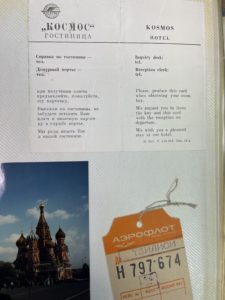
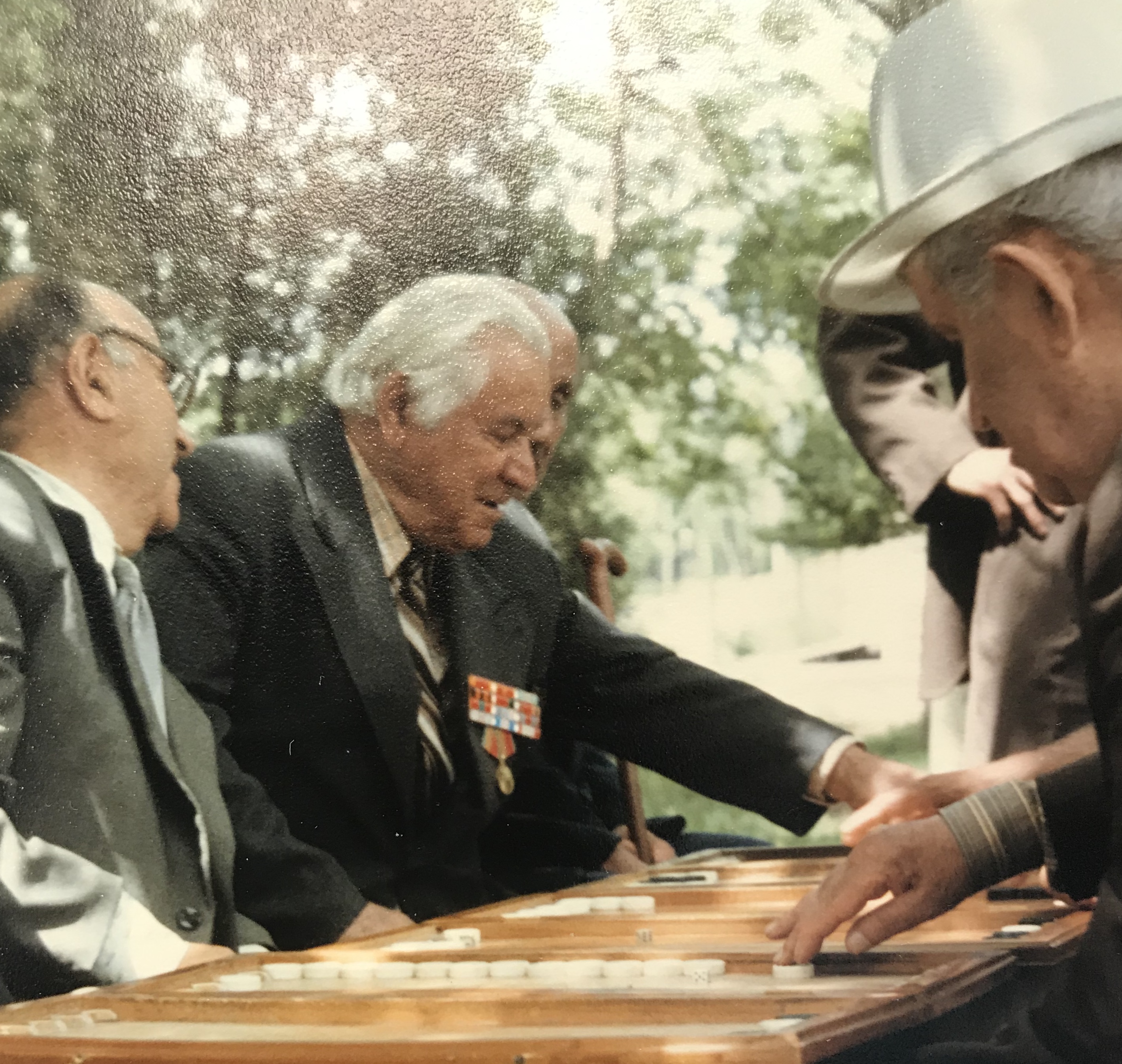
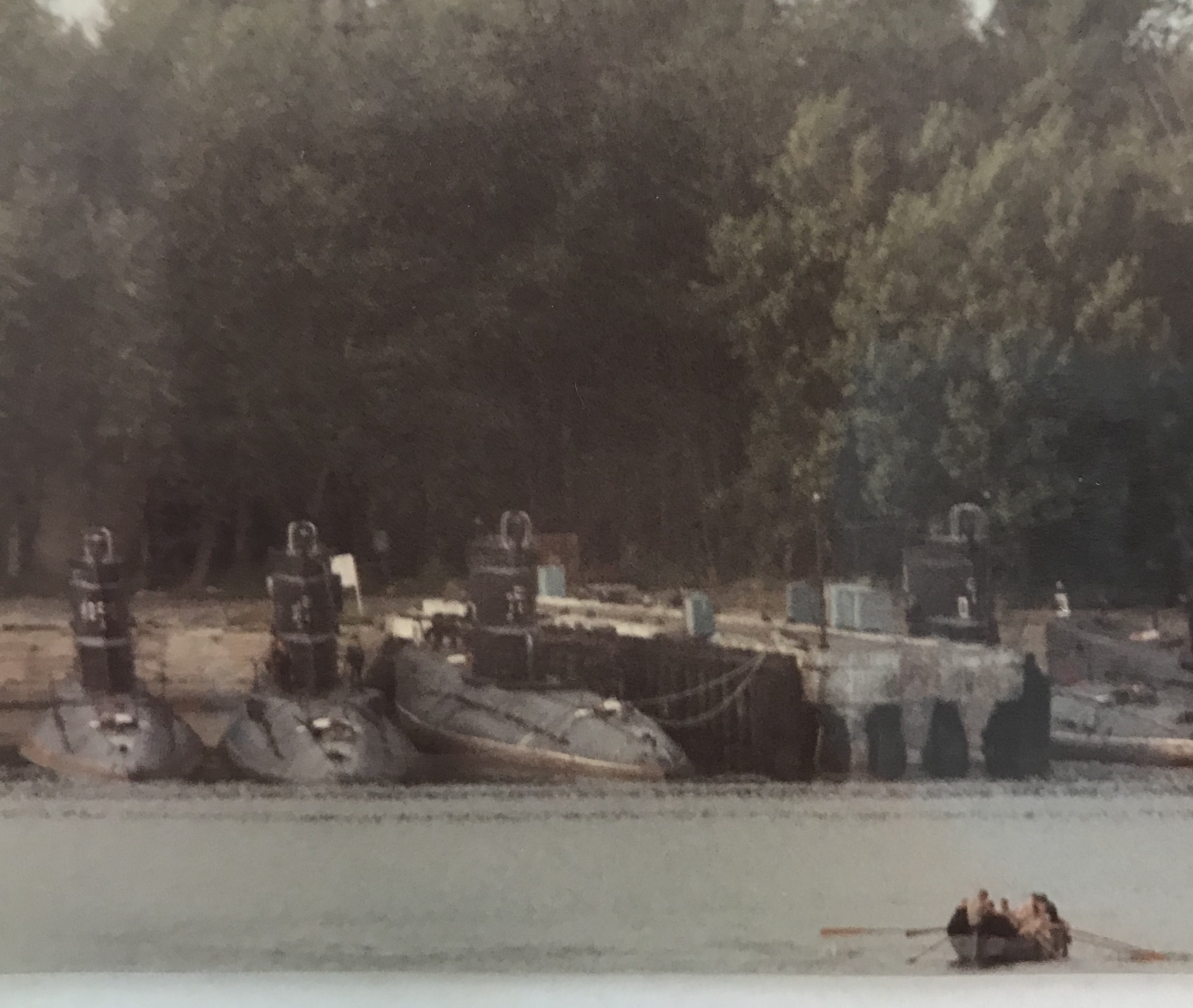
Country Information:
The capital of Russia is Moscow. Despite being one of the largest countries in the world at 17,075,200 square kilometers, the population is only around 145 million. The official language is Russian and the dominant religion is Orthodox Christianity. Because Russia is so large, it stretches across 11 time zones ranging from 6 to 16 hours ahead of EST.
Oymyakon in northeast Siberia (a part of Russia formally named the Siberian Federal District) is considered to be the world’s coldest inhabited town, with temperatures as low as -89.8 degrees Fahrenheit (-67.6 degrees Celsius).
Another unique fact is that Russia has the longest railway in the world, as well as one of the busiest. The Trans-Siberian Railway is 5,771.9 miles long (9,289km) and a non-stop journey takes over 150 hours.
Jim’s Perspectives:
Had a chance to visit the USSR in 1987, with my Russian history professor Dr. Willis Brooks and about 15 other students. The trip took us to see the many of the churches, museums, and palaces throughout the country, many of which are beautiful and worth a visit. We visited the Church of the Savior on Spilled Blood in St. Petersburg, where the architecture is detailed, colorful, and truly spectacular. Also visited St. Petersburg and the Hermitage Museum and Winter Palace, a museum lover’s dream due to the fantastic art, architecture, and history.
In Moscow, we toured around the iconic Red Square. This area of Russia is a historical and political hub in Russia, with the Kremlin, St. Basil’s cathedral, the Kremlin main clock tower, and several other attractions right nearby. This area is where we traded American-made tennis shoes for Russian laquer boxes, which was technically forbidden at the time … but widely done!
Afterwards, we traveled down to visit Tbilisi, the current capital of Georgia. The regions around Tbilisi served as one of the USSR’s most important political and cultural regions, and also a producer of food, including fruits, vegetables, wine and meat. All food items were produced on Soviet collective farms (where people were forced to farm for the “motherland”).
Afterwards, we spent time in Yerevan, the current capital of Armenia where we toured the city centre, the Opera House, and walked up the giant stairwell.
My wife Susan and I, along with my father and sister, visited St. Petersburg during a cruise stopover in 1992, and I toured the incredible Hermitage once again!
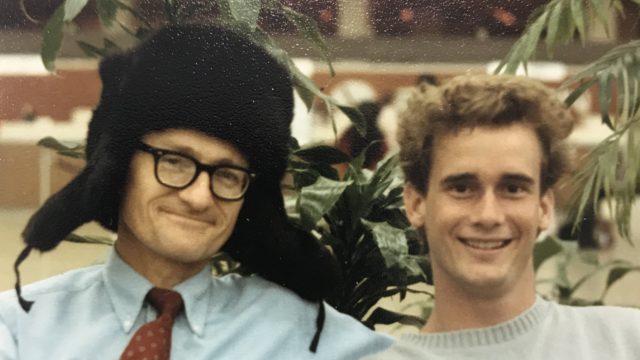
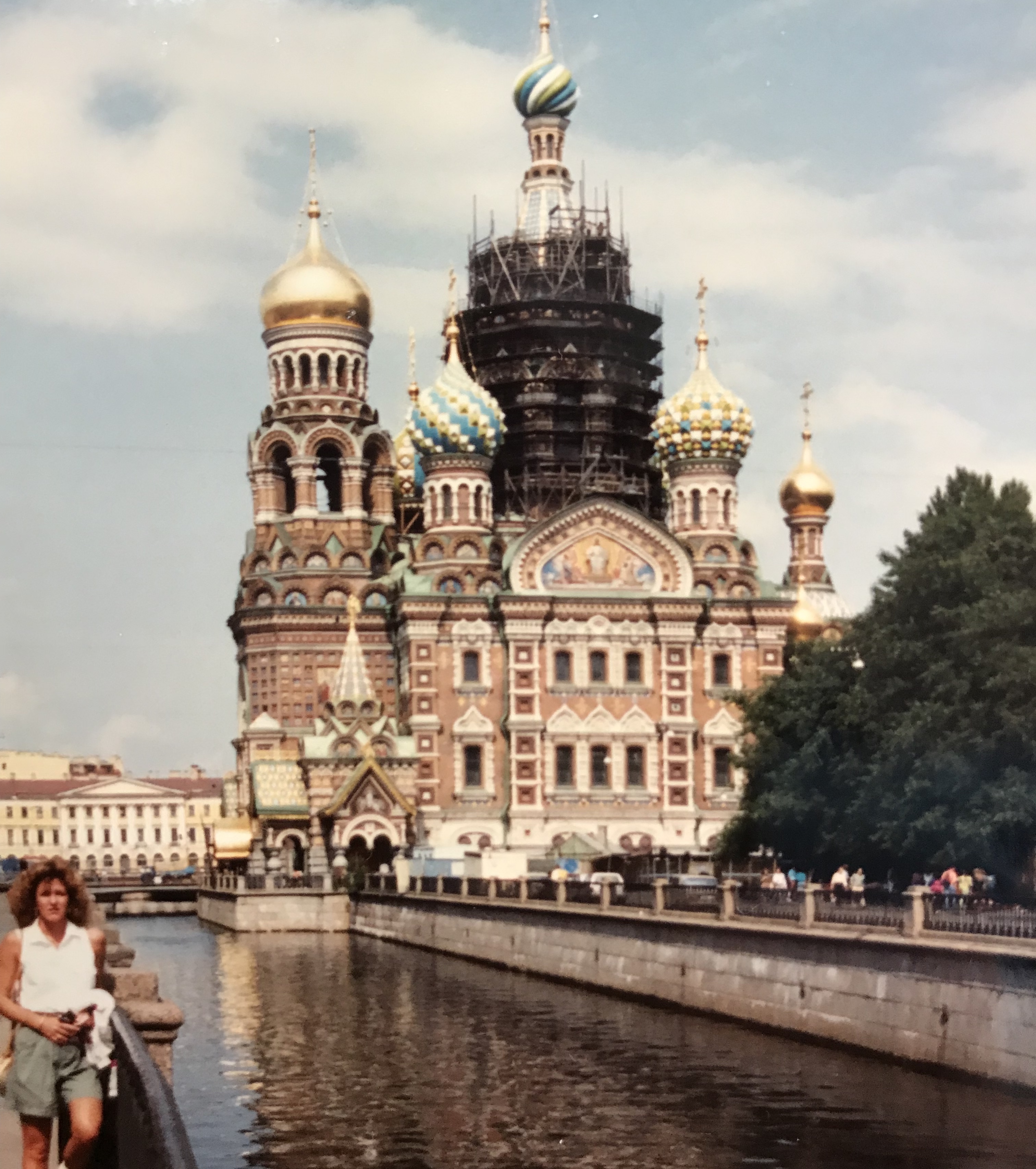
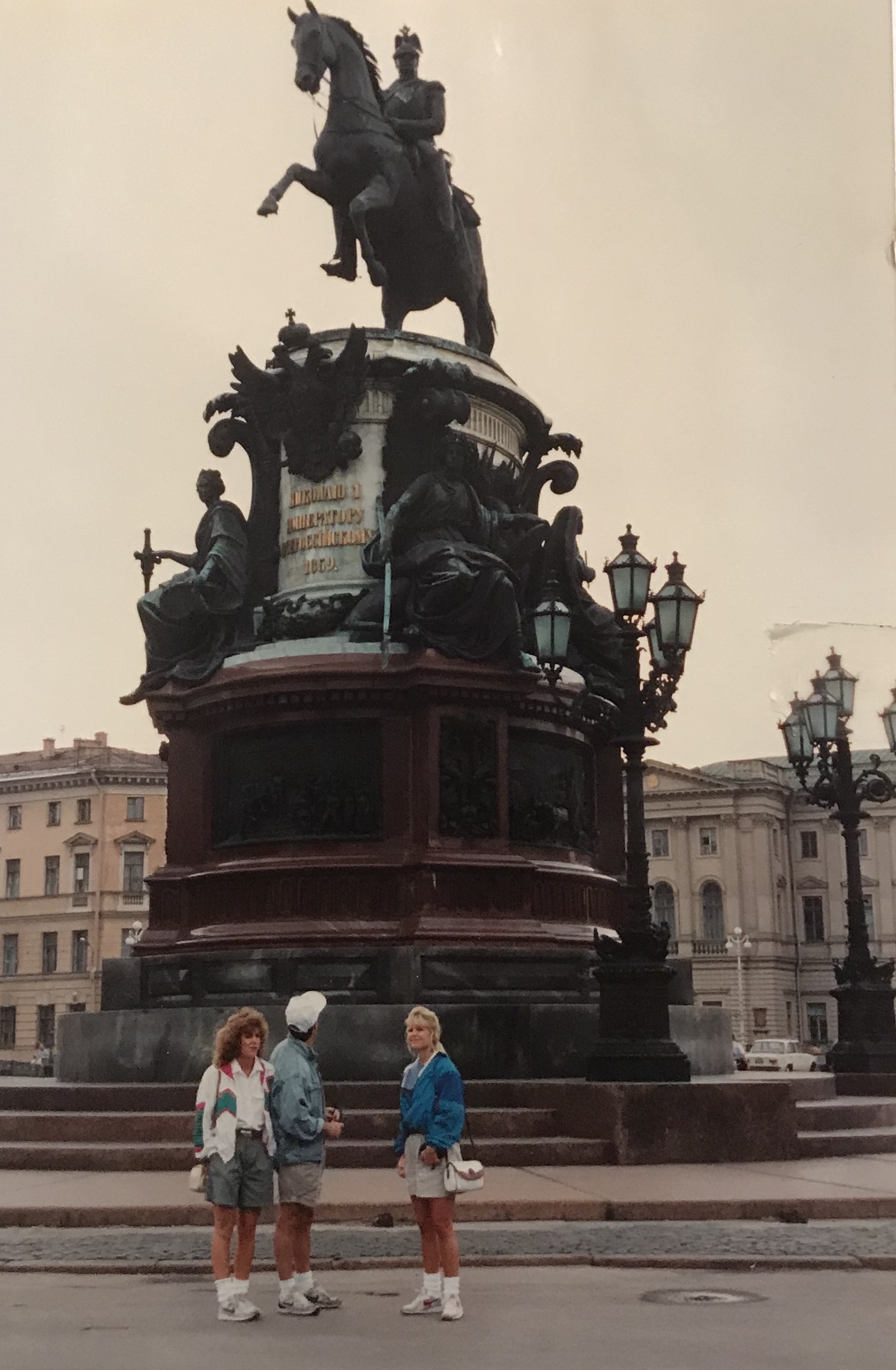
Here’s an excerpt from my book on some of my experiences in Russia:
“During one of my post-college summer treks, I went on an educational tour, exploring the Baltic regions and the Union of Soviet Socialist Republics with some other young travelers. It was a few years before the country’s demise, and the USSR was still a somewhat foreboding land of mystery and intrigue. We flew into Helsinki, then on to Moscow, made stops in Tbilisi and Yerevan, ended in Leningrad (St. Petersburg today). The tour was educational and fascinating, but I wondered, as we took in the sights, if I was getting an accurate view of the country. Our tour guide was a hardcore Soviet propagandist named Nelya, a stocky woman with eyebrows that met in the middle, and the information she presented to us about her country seemed a little too one-sided for my taste. What the tour needed, in my estimation, was more time hanging out with the locals, conversing and connecting with them in meaningful ways. With that opportunity never afforded to us by Nelya, I decided, that while in the Soviet Union I’d have to find it on my own.
This was probably not the smartest idea. Our American tour leader made it clear to us on that last night that we should all stay in the hotel. Nelya had apparently advised him that it might be unsafe to go wandering around Moscow at night unescorted. Besides, our bus for the airport was leaving the hotel at 6 a.m. sharp. Luggage needed to be in the lobby no later than 5:30. The sensible thing was to have dinner with the group, retire to my room, and get a good night’s sleep for the long flight home.
But I wanted to meet Russian people. I wanted to talk to them in their own language. I wanted to know what they thought of America and what they thought of their own government. I wanted to know what they were like, these mysterious human beings who resided behind the Iron Curtain. When else would I ever get a chance like this? After dinner, I tried to interest a few of the others on the tour but got no takers. Undaunted, I went out into the Moscow night by myself.
Outside of the hotel, I took a few lefts and maybe a right or two before hearing some live music coming out of a bar. I sauntered in and walked up to the bartender and ordered a piva (beer). Before long, I was conversing with some locals, just as I’d envisioned, trading stories and questions about life on the other side. Soon enough, the beers made way for vodka, the foremost Russian drink of choice. In no time, it was 3 a.m. and the bar was closing. My newfound friends and I wanted to keep the party going, so we all strolled across the street to a small park, sharing what was left of a bottle of vodka.
By 4 a.m., the group had dwindled down to two—me and an eye-catching blond named Taya. Perhaps I was on the cusp of an international romance I had fantasized about with my earlier interest in a secret agent career. I’ll never know. The idea was quickly snuffed out by the sudden presence on the street of a line of police cars and a few SWAT-like vehicles. Were they coming for me? I’d been given explicit instructions not to leave the hotel and I had disobeyed. Maybe Nelya had bugged my hotel room. She knew I wasn’t there and had called the authorities. I huddled behind some shrubs with Taya and watched as the procession roared past us and came to a stop in front of a brownstone across the street. The police swarmed the front door with one of them kicking it in and the rest storming into the residence, guns drawn. Shortly, an unfortunate middle-aged man in pajamas was hustled out of the house and into a police van.
What I would come to realize was that I had just witnessed an arrest by the infamous KGB, no doubt apprehending an enemy of the state who, one can assume, would most likely be given a sham of a trial and then exiled to Siberia never to be heard from again.
The police vehicles left as quickly as they’d come and it was quiet once again. I looked over at Taya, but in all the excitement, she had apparently scurried off. I began walking back to the hotel, now completely alone in Moscow. Two blocks later, I realized something alarming. I had no idea where the hotel was. I was completely and undeniably disoriented. I had no idea what direction to go and, worse, I couldn’t even remember the name of the hotel. Stupidly, I hadn’t bothered to write down either the name or the address.
I reversed direction. I tried another route. And then another. Nothing looked familiar. I looked at my watch: 5 a.m. I began to panic. In thirty minutes, my luggage needed to be in the lobby of a hotel I could not find. What would the tour operator do? Leave me? What would Nelya do? I knew she worked for a Soviet agency called Intourist, and I further knew that Intourist was an arm of the KGB. I’d be reported, certainly. Probably labeled a spy and sent to the same Siberian camp as the unfortunate man in pajamas.
They say you can’t really know a city unless you get lost in it. This was not the feeling I had in Moscow that morning. There was no sense of excitement, no sense of wonder, no feeling of intrigue, no desire to get off the beaten track. There was, instead, a sense of dread, a palpable feeling of impending doom in the pit of my stomach. I was a small boat in the middle of the ocean with no compass. I was lost. Hopelessly, helplessly lost.
Then, by some miracle of God, I finally turned a corner to glimpse, with the coming daybreak, the sight of our hotel, appearing like land to this wayward sailor. I ran to it, burst into the lobby, sprinted upstairs, threw my stuff into my suitcase, and made it back down to the lobby at 5:29. Nelya was never the wiser.”
